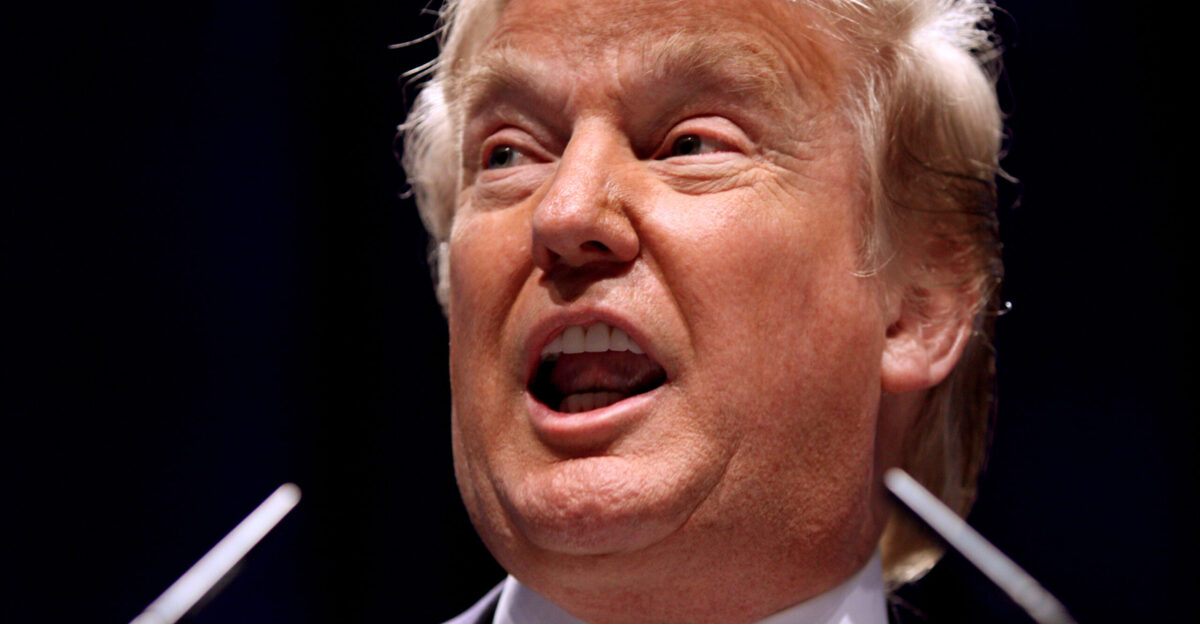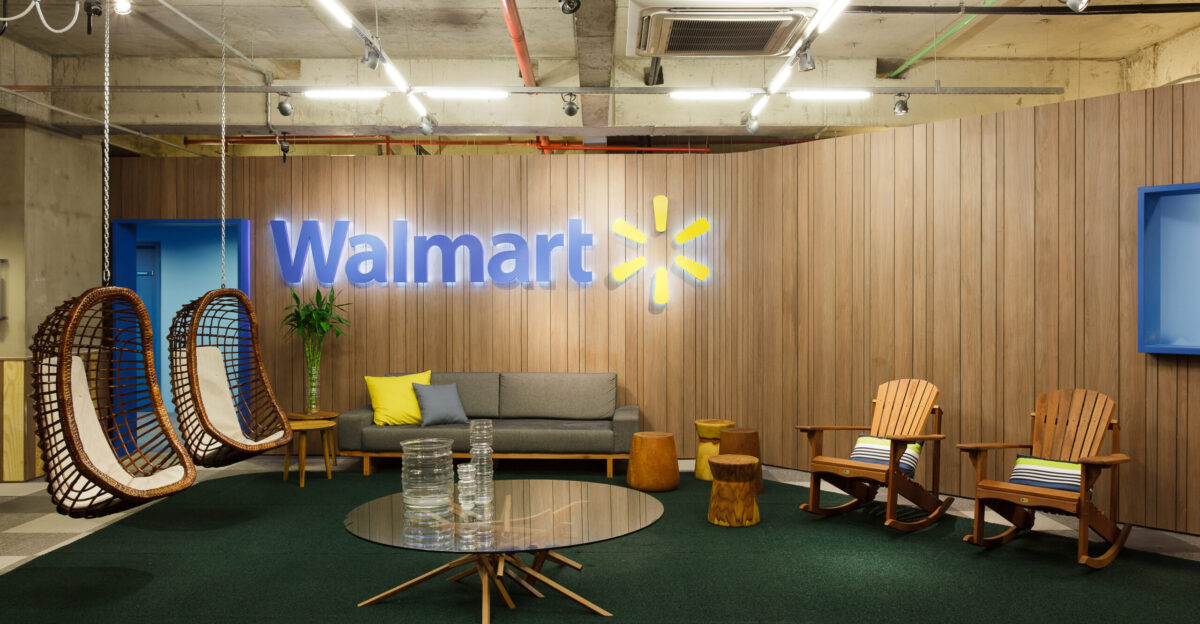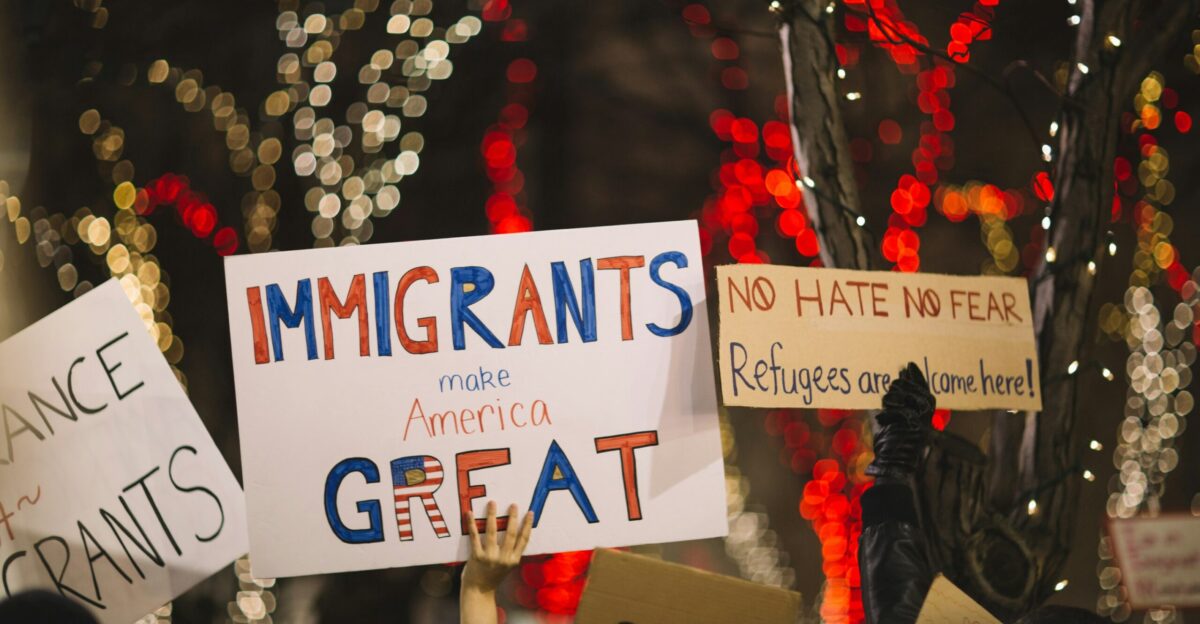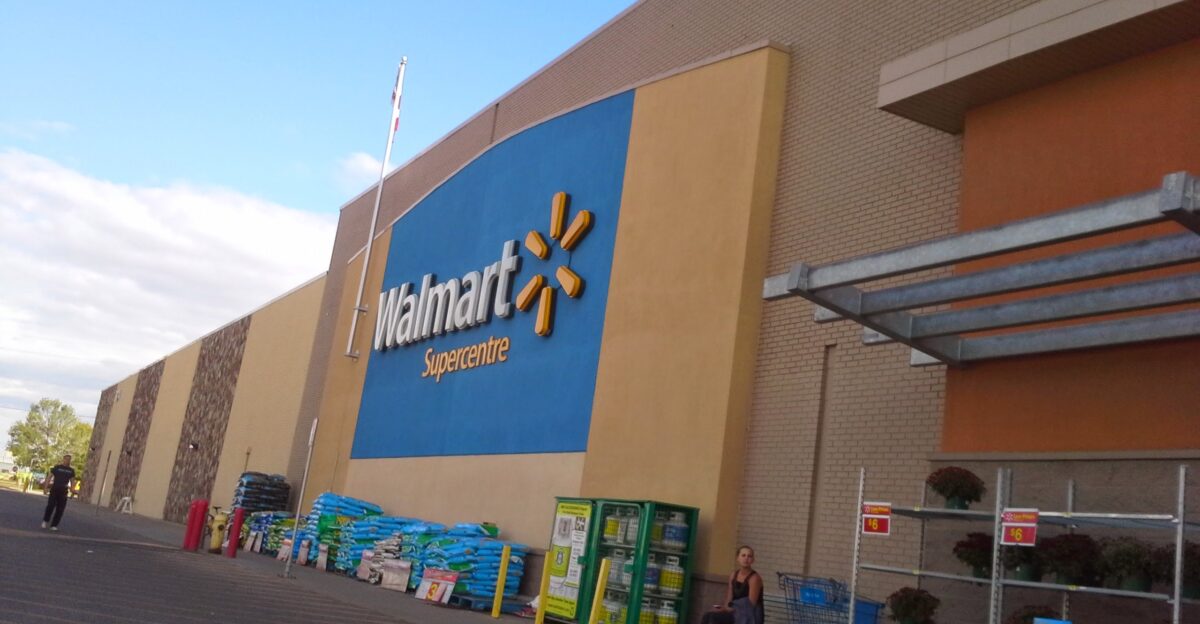
On October 21, 2025, Walmart – America’s largest private-sector employer – abruptly paused all job offers to candidates needing H‑1B visas. A spokeswoman confirmed the freeze came in response to a newly announced $100,000 one-time fee on H-1B petitions.
With roughly 2,390 H‑1B workers on its books, the decision immediately rattled corporate hiring plans nationwide.
Trump’s $100K Visa Tax

In late September 2025, President Trump signed a proclamation imposing a $100,000 fee on every new H‑1B visa application. Walmart cited this dramatic cost jump as the reason for its hiring freeze, calling new sponsorship “prohibitive.”
The one-time levy took effect September 21, 2025, and applies only to fresh applications filed abroad (renewals and pending petitions are exempt). As a result, employers must now pay far more to recruit foreign talent.
Walmart’s Tech Roles Left Vacant

Walmart’s hiring pause mostly hits its high-skill corporate jobs. Analysts note the freeze “primarily affects Walmart’s corporate roles” in technology, data, and finance, while store-level staffing is untouched.
The company already employs over 2,000 H‑1B visa holders. With these positions suddenly on hold, product development teams and customer-facing tech projects risk slowdowns, potentially delaying new online services or checkout innovations for shoppers.
Tech Giants Respond

Other employers immediately took notice. In the days after the fee announcement, Amazon, Google, and Microsoft reportedly emailed their H‑1B staff to remain in the U.S. and avoid travel abroad until the fee expires.
As a result, many tech giants are reconsidering foreign hiring: some plan to cut visa-backed roles, prefer U.S. graduates, or offshore more work.
Domestic Hiring Surges Amid Visa Ban

U.S. talent is suddenly in the spotlight. Companies say they will “fortify the US core” by upskilling current employees and partnering with universities. Training programs, internships, and community college alliances are expanding.
Many firms are doubling down on American workers and hiring local STEM graduates and veterans to fill roles that overseas professionals would have filled. This pivot to homegrown expertise is the first major ripple from the policy change.
India’s Dominance Shaken

The fee disrupts long-standing global hiring patterns. For example, Indians received 71% of approved H‑1B visas in 2024, so India is by far the biggest source of U.S. tech talent.
Industry analysts warn this could reverse: some predict companies may relocate research centers to Bangalore, Toronto or London instead. Countries with friendlier visa rules (Canada, EU, India) stand to gain skilled workers as U.S. jobs become harder to secure.
Skilled Workers in Limbo

Thousands of foreign professionals suddenly find their futures uncertain. Many Indian visa-holders and new applicants have seen U.S. job offers rescinded or delayed. Candidates who moved or prepared for these roles now face weeks or months of waiting.
In some cases, hopeful workers may need to seek alternatives (like L-1 or O-1 visas) or even return home. As one business column notes, this adds “another layer of uncertainty” for immigrants who had pinned hopes on U.S. jobs.
Immigration Policy Debate Heats Up

Meanwhile in Washington, the visa fee has reignited the debate over immigration. The White House argues the move “places American workers first” and should discourage abuses of the system. Commerce Secretary Howard Lutnick put it bluntly: “Train Americans. Stop bringing in people to take our jobs,” he said on September 20.
Opponents are fighting back. The U.S. Chamber of Commerce sued the administration, warning that the steep fee will “inflict significant harm on American businesses.”.
Economic Aftershock

Analysts foresee a tighter labor market for specialists and upward pressure on wages. As Nicola Wealth’s Benjamin Jang warns, the new bottleneck of talent “could lead to upward wage pressures,” which businesses might pass on to consumers.
In turn, higher labor costs may contribute to inflation – for example, tech services or new products from Walmart could carry slightly higher price tags. Economists caution this policy could thus have unintended ripple effects on the broader economy.
Retail Reinvents Hiring

In response, Walmart and its peers are revising recruitment tactics. Some retailers are accelerating automation (e.g., self-checkouts or inventory robots) and expanding employee training instead of hiring abroad. Others will lean on outsourcing.
As immigration lawyer Loren Locke observes, many companies “will likely continue recruiting [international students]… but then deploy them to nearshore offices in Canada or Mexico” after their visas expire.
Restaurant and Hospitality Squeeze

The freeze also strains service sectors. Restaurants and hotels, already suffering post-pandemic labor shortages, may find kitchen chefs and specialized staff harder to replace. Industry experts predict some eateries will delay new hiring or cut hours, while hotels might struggle to staff IT and management positions.
In many cases, employers will turn to domestic or seasonal visas (like H-2B) and even more automation to keep operations running.
Supply Chain and Services Disrupted

The consequences ripple beyond retail. Logistics and IT firms that serve Walmart could face talent gaps, slowing warehouse upgrades, and software projects. Even consulting firms must brace for fewer available specialists.
Globally, outsourcing hubs may see gains: one analysis predicts U.S. tech providers could shift from 70–80% offshore work today to as much as 90% offshore over time.
Global Shoppers Wait

For international customers, the freeze could mean delays. Walmart operates over 10,750 stores in 19 countries and has been rolling out new tech (like AI-driven ordering) worldwide. If corporate tech teams are understaffed, new in-store services or e-commerce features may roll out more slowly.
Emerging markets – from Africa to Asia – might see fewer new store openings or slower digital upgrades. In the meantime, global shoppers should expect a more cautious pace of change.
Stress on Workers and Families

Back home, the policy reverberates through communities. Thousands of foreign workers and their families face stress and uncertainty, potentially affecting mental health and household stability. The sudden loss of a job offer can lead to anxiety and difficult decisions (like moving plans or visa choices).
U.S. workers see new prospects, but the abrupt shift also creates workplace jitters.
Cultural Debate

The freeze has touched a nerve on national identity. Critics warn of a looming “brain drain” – as one analyst put it, cutting off skilled immigrants “will weigh heavily on [U.S.] productivity”. Supporters counter that America is simply prioritizing its own workforce.
The debate echoes over dinner tables and social media: some celebrate an opportunity for local STEM graduates, others lament that innovation relies on global talent..
Sectors and Workers at Stake

The policy clearly creates new winners and losers. Winners include American tech graduates, programmers, and engineers, who may see more job openings. Also, big multinational companies (like Microsoft or Apple) with ample domestic workforces can absorb the fee and simply pass it on or offshore.
Losers are foreign nationals and smaller firms: thousands of international students and candidates lose out, and U.S. startups or mid-size tech consultancies could be “starved of qualified workers,” as Baird analyst Colin Sebastian warns.
Walmart Stock and Market Speculation

Wall Street is watching. Traders and analysts monitor companies heavily reliant on visas for any sign of slower growth. Walmart’s stock price showed volatility in the days after the freeze, reflecting investor concern about higher labor costs and hiring hiccups.
Some fund managers note that small retailers could face tighter profit margins. However, many also point out that Walmart’s sheer size (1.6 million U.S. employees) helps absorb the shock.
How to Adapt to the New Hiring Reality

What should individuals expect? Shoppers might notice slower introductions of new services or slightly higher prices on tech-heavy goods. Job seekers in tech and retail should focus on in-demand skills (data analytics, AI, supply-chain management) and consider training programs. Foreign professionals awaiting H‑1Bs should explore alternatives: L‑1 intracompany transfers, O‑1 visas for exceptional talent, or remote roles.
The U.S. government advises visa applicants to carefully track regulation updates. In short, stay informed and flexible as the landscape shifts.
Lobbying, Lawsuits and Future Hiring

Experts predict continued upheaval in coming months. This summer roughly 400,000 H‑1B petitions were approved, mostly renewals – a sign of how many lives the program touches. Many companies and trade groups are now lobbying Congress and the courts to soften the fee or seek exemptions.
Some tech giants might move more R&D overseas or expand visa-immune hiring (like CPT/OPT pipelines for international students).
A Broad Shift in the U.S. Workforce Policy

Walmart’s hiring freeze, triggered by the $100,000 H‑1B fee, is far more than a single company decision. As one analysis notes, it “underscores a broader shift in the U.S. labor and immigration landscape”.
This chain reaction is moving markets and mindsets from boardrooms to Main Street. Stakeholders around the world are watching how American businesses adapt and how new policies evolve.